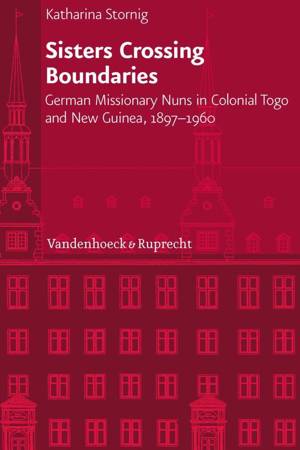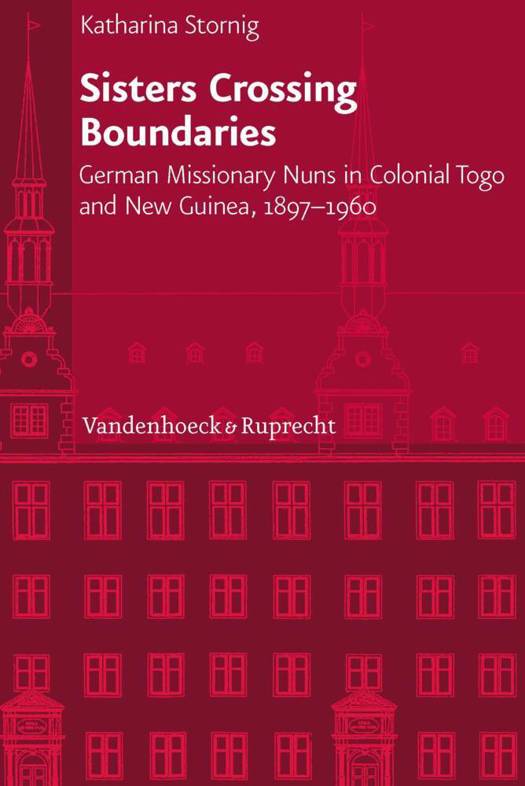
- Afhalen na 1 uur in een winkel met voorraad
- Gratis thuislevering in België vanaf € 30
- Ruim aanbod met 7 miljoen producten
- Afhalen na 1 uur in een winkel met voorraad
- Gratis thuislevering in België vanaf € 30
- Ruim aanbod met 7 miljoen producten
Zoeken
Sisters Crossing Boundaries
German Missionary Nuns in Colonial Togo and New Guinea, 1897-1960
Katharina Stornig
€ 125,39
+ 250 punten
Omschrijving
The last third of the 19th century witnessed a considerable increase in the active participation of women in the various Christian missions. Katharina Stornig focusses on the Catholic case, and particularly explores the activities and experiences of German missionary nuns, the so-called Servants of the Holy Spirit, in colonial Togo and New Guinea in the late 19th and first half of the 20th centuries. Introducing the nuns ambiguous roles as travelers, evangelists, believers, domestic workers, farmers, teachers, and nurses, Stornig highlights the ways in which these women shaped and were shaped by the missionary encounter and how they affected colonial societies more generally. Privileging the sources produced by nuns (i.e. letters, chronicles and reports) and emphasizing their activities, Sisters Crossing Boundaries profoundly challenges the frequent depiction of women and particularly nuns as the largely passive observers of the missionizing and colonizing activities of men. Stornig does not stop at adding women to the existing historical narrative of mission in Togo and New Guinea, but presents the hopes and strategies that German nuns related to the imagination and practice of empire. She also discusses the effects of boundary-crossing, both real and imagined, in the context of religion, gender and race.
Specificaties
Betrokkenen
- Auteur(s):
- Uitgeverij:
Inhoud
- Aantal bladzijden:
- 413
- Taal:
- Engels
- Reeks:
- Reeksnummer:
- nr. 232
Eigenschappen
- Productcode (EAN):
- 9783525101292
- Verschijningsdatum:
- 2/10/2013
- Uitvoering:
- Hardcover
- Formaat:
- Genaaid
- Afmetingen:
- 160 mm x 237 mm
- Gewicht:
- 815 g

Alleen bij Standaard Boekhandel
+ 250 punten op je klantenkaart van Standaard Boekhandel
Beoordelingen
We publiceren alleen reviews die voldoen aan de voorwaarden voor reviews. Bekijk onze voorwaarden voor reviews.








